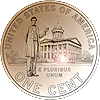Newswire: Lincoln's Leadership

September 25, 2008 • The Daily Free Press Boston University
Dan Seliber, a columnist for Boston University’s The Daily Free Press, wrote a piece today on the standard of leadership set by Abraham Lincoln. Here is an excerpt from a well-written look at Lincoln’s Leadership: 
You cannot call yourself an educated American without understanding the significance of Lincoln's leadership during a national crisis. This is especially true in light of the moral leadership vacuum that is today's federal government.
You also cannot be an educated American without understanding all of the Founding Fathers' achievements. Without George Washington, there would be no United States of America, let alone one that even minimally functions to this day. The historian David McCullough, speaking about his Revolutionary War chronicle, "1776," said of Washington and the rest of those merry men, "We can never know too much about them," an assessment that also functions as a clever justification to buy his book.
Surely McCullough is correct. The men who built the United States were, indeed, some of the bravest and most brilliant Americans who ever lived. To this day, they remain underappreciated by millions of their contemporary countrymen, in a nation that, as Dan Rather cautioned on Tuesday night in [Boston University’s] Metcalf Ballroom, no longer understands the idea of civics.
Heck, I'm flabbergasted simply by their youth: At the time the Declaration of Independence was signed in 1776, Thomas Jefferson was 33. John Adams was 40. Washington, commanding the Continental Army, was 44. Alexander Hamilton, writing the Federalist Papers in 1787, was a scant 32. "Founding Fathers" isn't even accurate. "Founding older brothers" is closer to the truth. It recalls funnyman Tom Lehrer's great line, "It's a sobering thought that when Mozart was my age, he'd been dead for two years."
By the same token, we as Americans could never learn enough about Lincoln. I have only just begun Doris Kearns Goodwin's recent biography, "Team of Rivals," but its title alone hints at one of Lincoln's greatest unheeded precedents: When he was elected president for the first time, he chose all the men who had run against him for the nomination-most of whom hated him-to serve in his cabinet as his closest and most trusted advisers. Why? Because he knew they were the smartest and most qualified men for the job, and in such a monumental crisis as the Civil War, personal animosities must be cast aside for the good of the country.
* * * |


Like us on
Instagram and
Facebook for additional leadership and personal development ideas.
Posted by Michael McKinney at 09:42 AM
Permalink
| Comments (0)
| This post is about Leaders
, NewsWire









